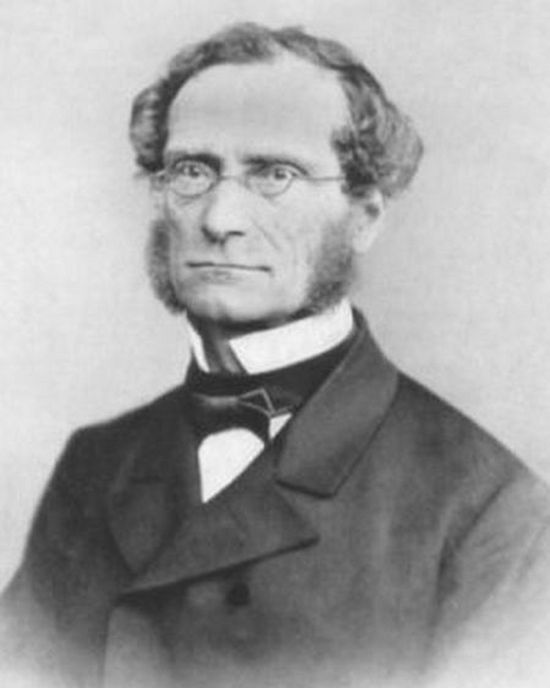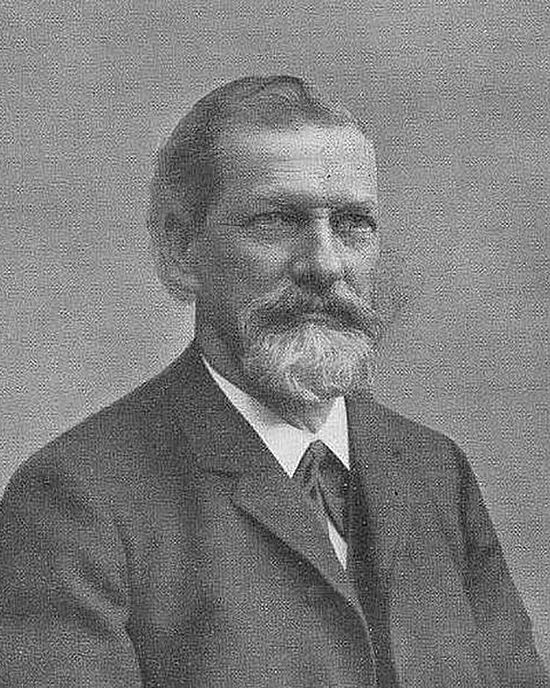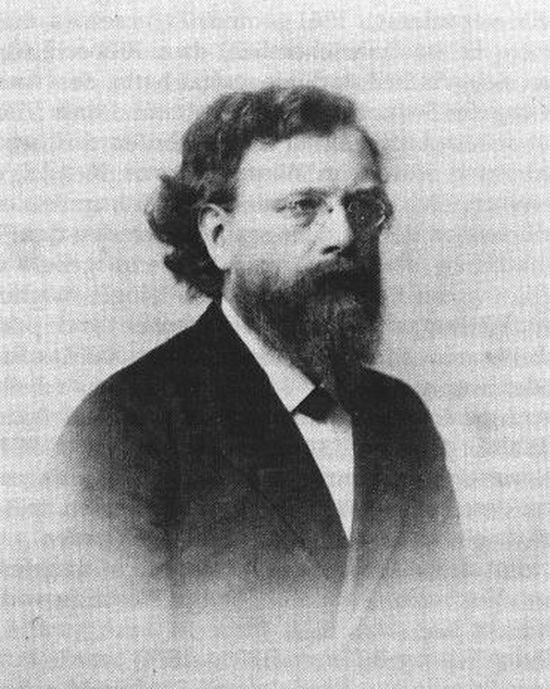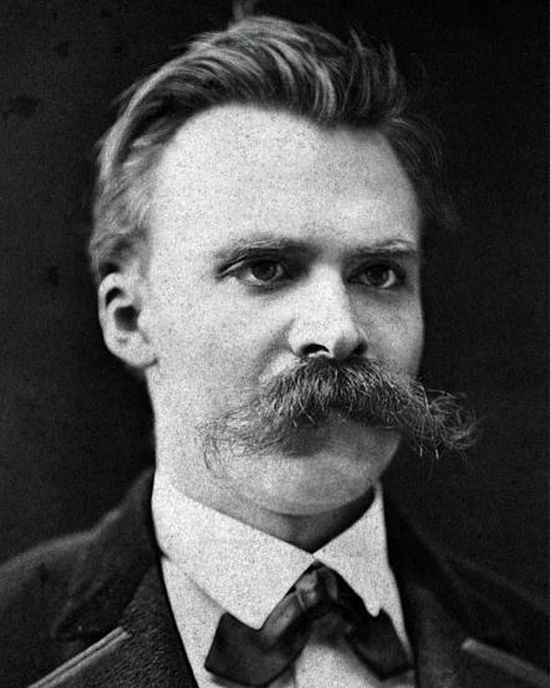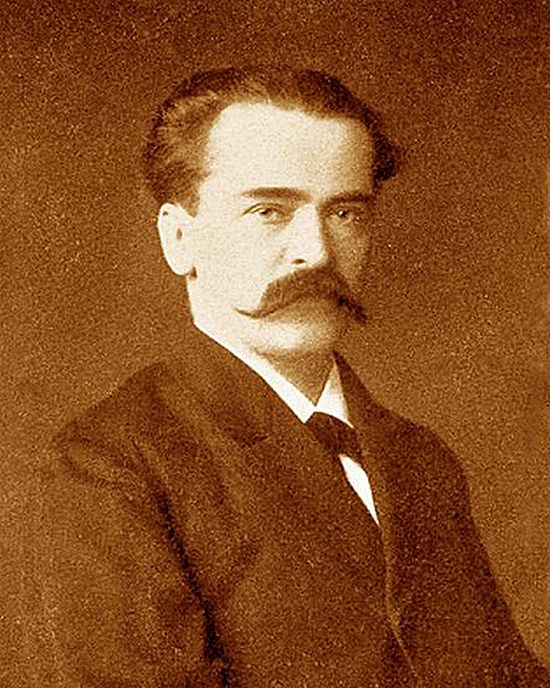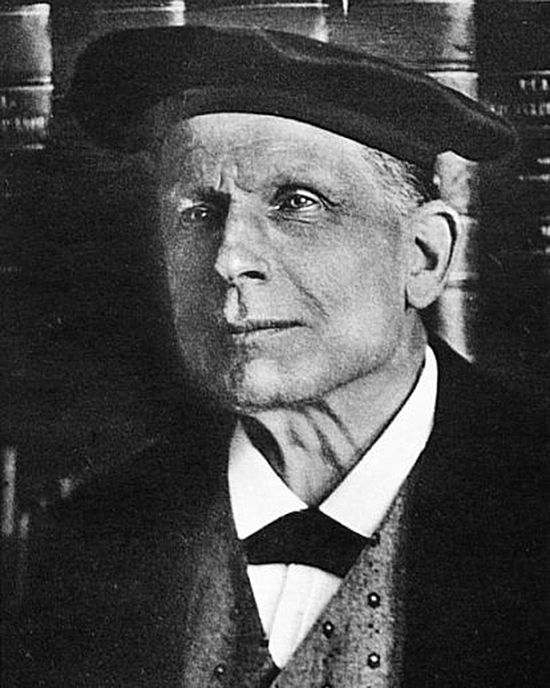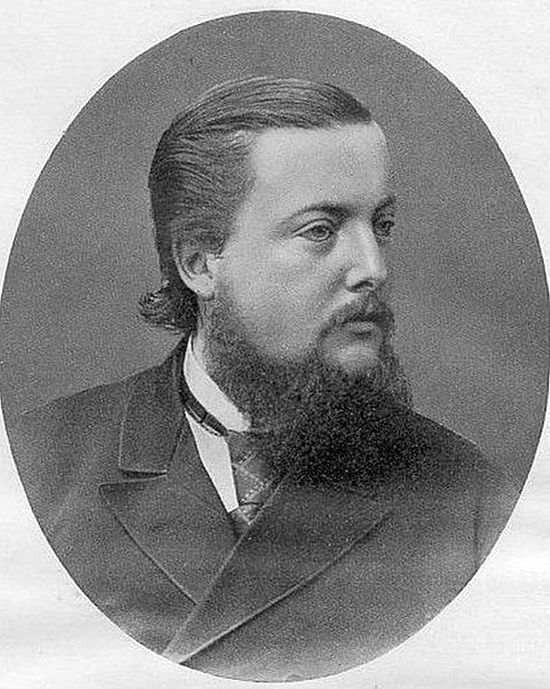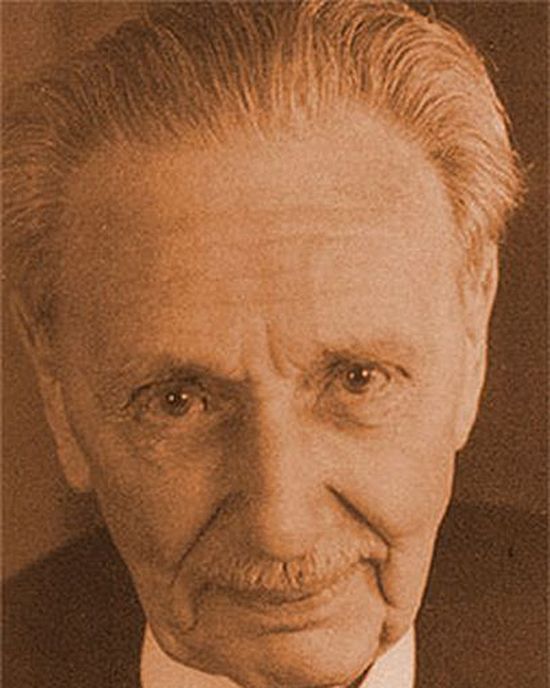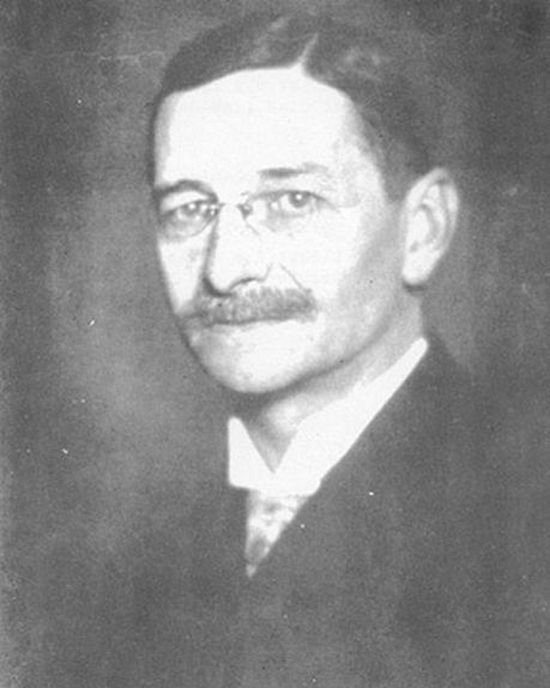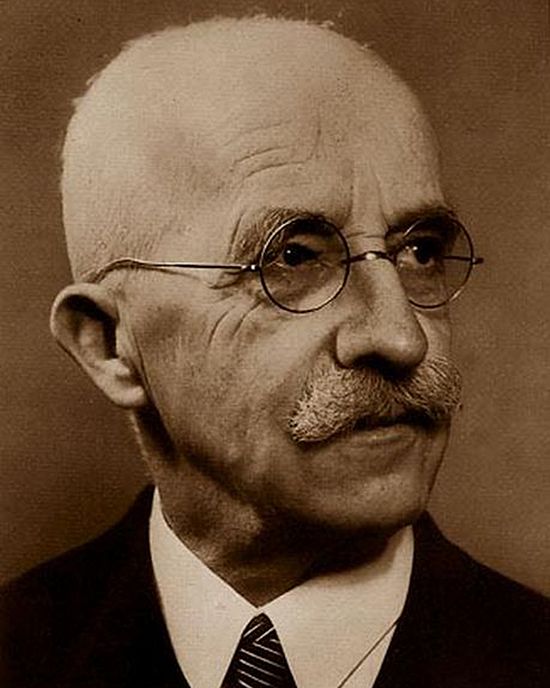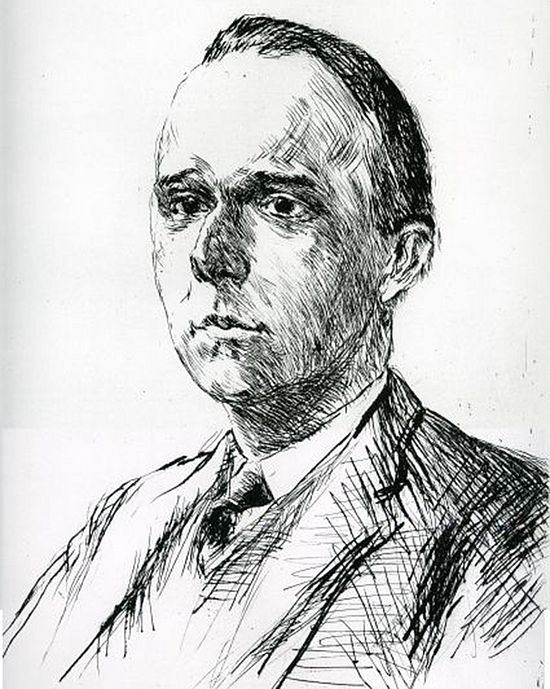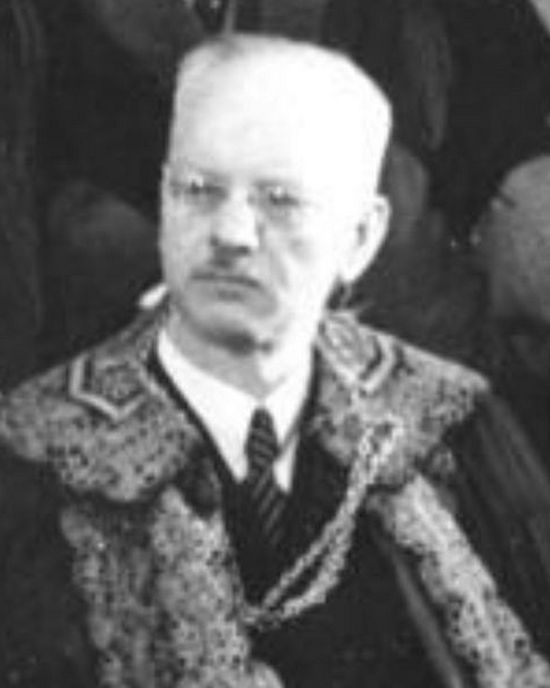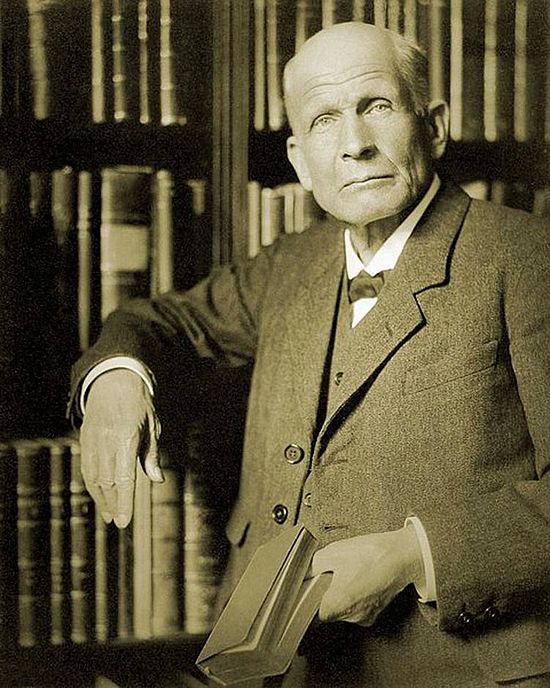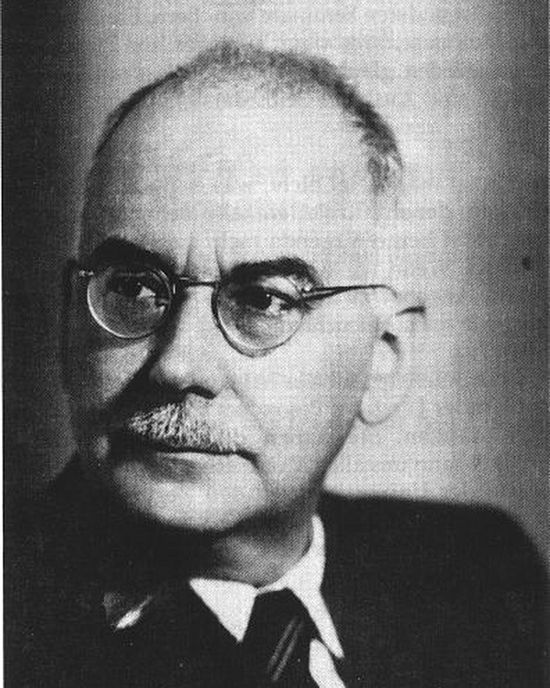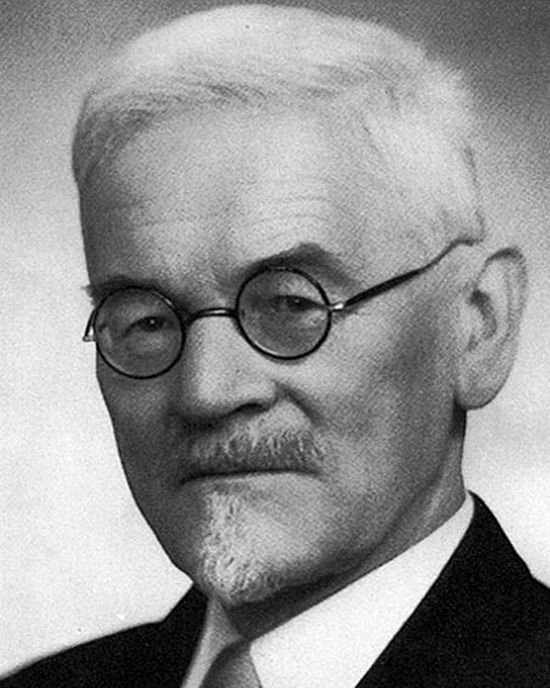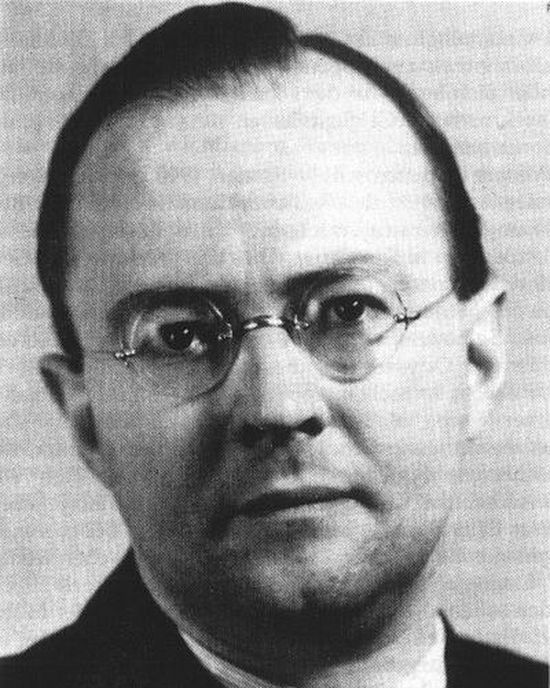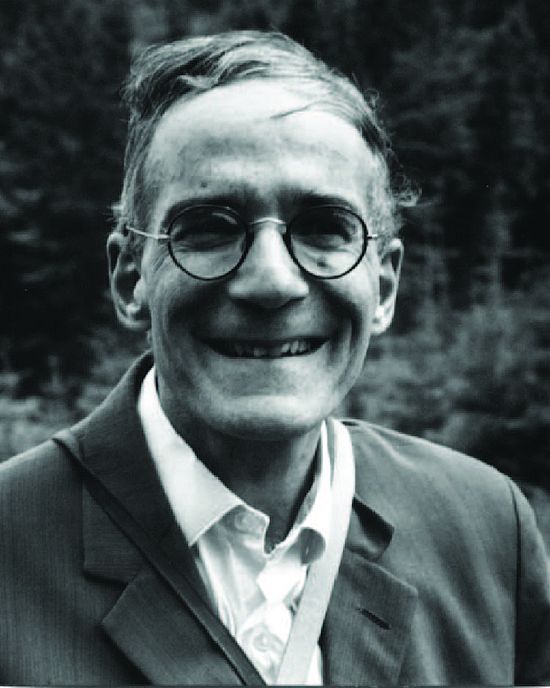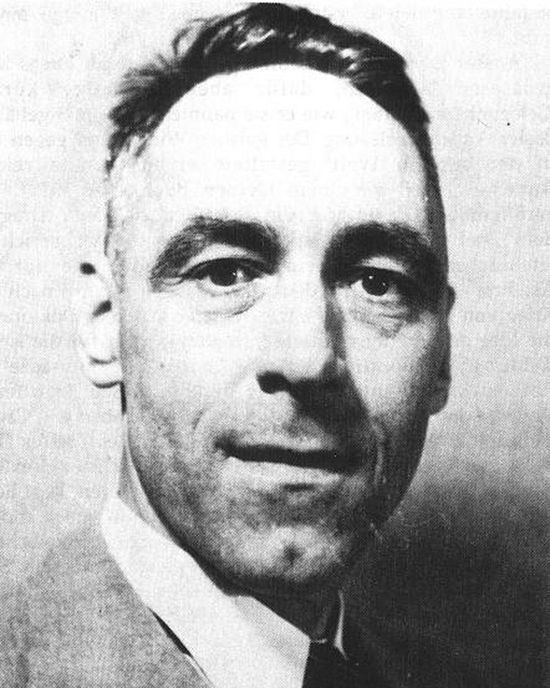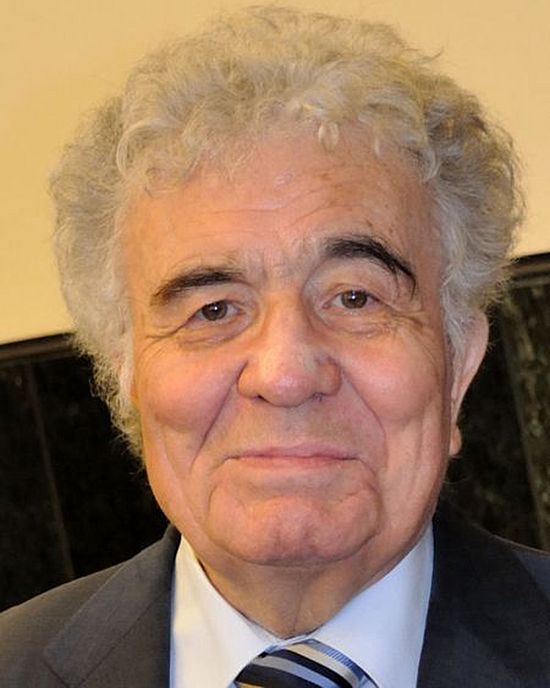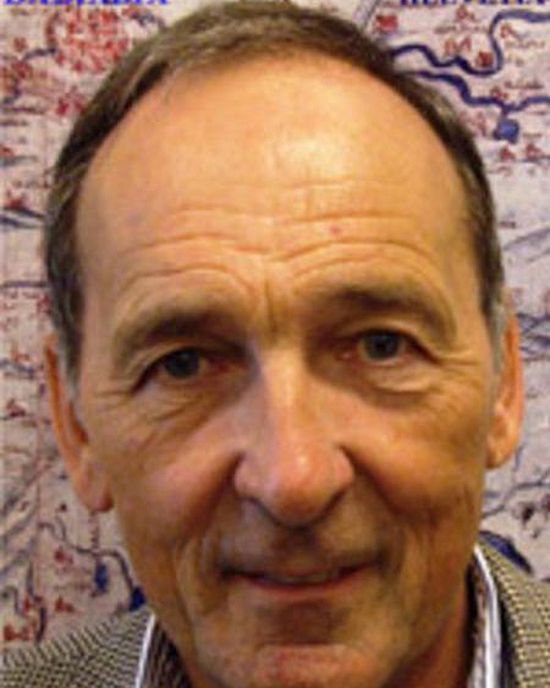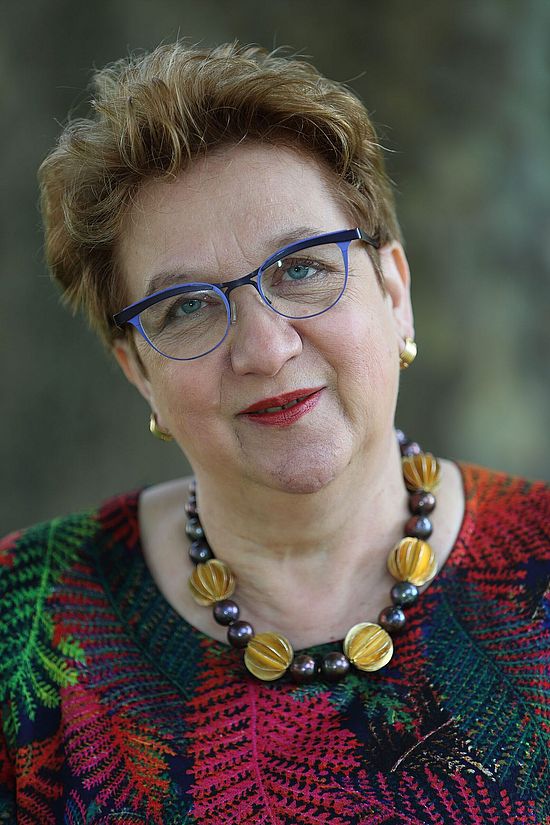The Subject Area of Greek Philology
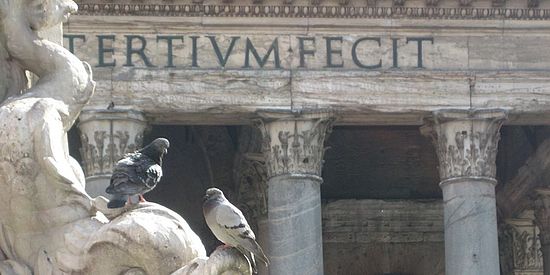
History of the Seminar of Classical Philology
In 1433, Enea Silvio Piccolomini, later Pope Pius II and founder of the University of Basel, remarked in a letter to the papal legate, Cardinal Giuliano Cesarini, about Basel and its inhabitants:
Scientias non affectant neque peritiam gentilium litterarum, ut nec Ciceronem nec alium quemvis oratorum nominari audiverint. Neque poetarum exoptantur opera. Grammaticae tantum dant operam dialecticaeque.
The new enthusiasm for the works of ancient authors, which had also infected Enea Silvio, had not yet reached Basel. Even at the university, founded a little later in 1460, teaching was still entirely in the spirit of the Middle Ages. The provision from the statutes of the faculty of arts of 1492
nullus in disputatione bursali lectiones poeticas sumat, ut eo minus scolares ab actibus necessarioribus distrahantur
confirms Piccolomini's observation. And yet, as early as 1464, the university's wish had been granted that a "poeta" - as Enea Silvio and his comrades-in-arms liked to call themselves - be recruited to "read in poetrye ze" (Bonjour 95). This lectureship in poetry, first held by the early humanist Petrus Antonius from Final, was subsequently maintained. The aim of the lessons was the ability to compose speeches and essays in elegant Latin. Phrases and quotations from the Roman classics were supposed to provide the necessary decoration. That the humanistic trees were not allowed to grow to the sky in scholastic teaching is shown (in addition to the provision quoted above) by a resolution of the Artistic Faculty from 1495, according to which disputations had to be held in logic and grammar "et non in poesi" (Bonjour 96).
The high point of this first period of Basel humanism was the teaching of Sebastian Brant (1458-1521). In 1475 Brant had matriculated at the university; from 1483 he lectured. Although he worked full-time at the Faculty of Law, he probably worked at times as a teacher of poetry.
But not only did he cultivate the Latin language and literature, he also turned to the study of Greek. Already during the Council (1431-1449), scholars who sought knowledge of Greek had gathered in Basel. Giovanni Aurispa (1370-1459) was an interpreter for a Greek legation. The Dominican John Stoikovic' of Ragusa was sent by the Council to Constantinople for negotiations with the Greeks (1435-1437) and returned with a large number of Greek manuscripts. At his death (1443), he left over 60 Greek codices to the Dominican Monastery of Basel, which today make up the bulk of the 90-number collection of Greek manuscripts in the University Library of Basel.
In 1474 Johannes Reuchlin (1455 - 1522), who had acquired a basic knowledge of Greek from Greek emigrants in Paris, matriculated in Basel. Here he was able to complete his studies with Andronikos Kontoblakas, a Greek who had fled to the Occident; in 1477 he earned a master's degree from Basel. The Greek lessons he is said to have given, however, were only private.
In this first period, which ended about 1499 with Sebastian Brant's departure for Strasbourg, Basel humanism was not opposed to the Church and scholasticism, but pursued the same goals as they, only by different means. At the beginning of the 16th century, these ties loosened, and the study of the ancients became the focus of interest. The art of printing, which had not only been praised but also actively promoted by the early humanists in Basel, attracted further talent to Basel. In 1505, Thomas Wyttenbach arrived from Biel as a Tübingen Magister and gave inspiring lectures on philological and theological topics. In 1514 Heinrich Loriti from Mollis, called Glareanus after his birthplace, moved to Basel. In 1512 Emperor Maximilian had crowned him a poet. He lectured intermittently at the faculty of arts until 1529. His works include the 'Descriptio Helveticae' (1514) and his work on music theory 'Dodekachordon' (1547). His contemporaries, however, held him in high esteem mainly for his Latin poetry; Erasmus honored him and Thomas More with the same formula: 'omnium horarum homo'.
Erasmus himself lived - apart from short stays - from 1521 to 1528 in Basel, where he had found his printer Froben. In 1529 he fled from the Reformation to Freiburg im Breisgau. He did not return to Basel until 1535, where he died a year later. Erasmus was never a member of the university, but nevertheless formed the center of the intellectual life of that era.
Also active outside the university was Beatus Rhenanus (1485 - 1547), Erasmus' first biographer, who lived in Basel from 1511-1527. During these years he published the editio princeps of most of Tertullian's works (1521, further editions 1528 and 1535) and the 'Germania' of Tacitus (1519). In 1515, at a time when most ancient texts had already been discovered, he found in the Alsatian monastery of Murbach a manuscript containing the historical work of Velleius Paterculus, which he first published with Froben in 1520/1. Today, after the loss of the Murbach manuscript, the constitution of the text must be based on this editio princeps as well as on the collation by J. A. Burer and the copy that Bonifacius Amerbach had made of a copy of the Murbach codex (today in the Basel University Library).
Rhenanus had come to Basel partly because he had heard of the Greek lessons that Johannes Cuno (ca. 1463-1513) had recently been giving here. Cuno, a student of Reuchlin in Heidelberg, had settled in Basel at the beginning of 1511 after years of travel in Italy. In addition to teaching Greek in a private circle (in which Bonifacius Amerbach also participated together with his brothers), he edited the Greek parts as Reuchlin's successor for an edition of Jerome at the printer Amerbach. After the death of Cuno and Amerbach, Froben finally published them with Erasmus' help in 1516.
The university, and with it humanistic studies, suffered a serious setback in 1529 with the victory of the Reformation in Basel. Several outstanding scholars preferred to give way to the new teaching, including Erasmus and, in his wake, Glareanus.
Teaching at the university was suspended for three years. But already in 1532 the university was reopened in a new form. The driving force and leader of the reorganization was Bonifacius Amerbach. The renewed university now saw as its essential task "the imparting of a Christian Reformed education saturated with humanism," and this was the guiding idea under which it stood until the enactment of the new university law in 1818 (E. Stähelin 11).
The Faculty of Arts was again subordinated to the three upper faculties as a propaedeutic faculty, as it had been before. Of the initial five chairs, one each was designated for Greek and for Rhetoric. A little later, a chair for eloquence was added. While in eloquence more grammar and vocabulary of the Latin language were practiced, in rhetoric the main emphasis was on style.
Among the professors of the first period, Simon Grynaeus (1493-1541), who taught Greek from 1529 to 1541, should be mentioned. Among his numerous editions, the editio princeps of the 'Megale Syntaxis' of Klaudios Ptolemaios (1538), which he edited together with Camerarius, stands out. In 1539 a 'Lexicon Graecum' appeared. In the monastery of Lorsch he tracked down the hitherto unknown books 41-45 of Livius. Just elected rector, Grynaeus died of the plague in 1541.
He was succeeded by Johannes Oporinus (1507-1568), who also taught Latin. As early as 1542, however, he resigned his teaching position in order to devote himself entirely to his printing business.
In the two centuries that followed, the level of academic teaching dropped rapidly - and not only in the classical subjects. There were several reasons for this: Given Basel's exposed position, the 30 Years' War had its negative effects on the university as well. Then in the 17th century began what has been called the 'Verbaslerung' of the university. Foreigners among the professors became the exception. At the university as in the city, the same families always predominated, such as the Burckhardts, the Faeschs, the Wettsteins. (Johann Jakob Wettstein [1693-1754], who was a theologian by profession, nevertheless holds a place of honor in the history of philology because of his New Testament textual criticism). One must also keep in mind how the Faculty of Arts was organized at that time. It had nine chairs of logic, rhetoric, eloquence, Greek, Organum Aristotelicum (replaced by history in 1658), physics, mathematics, ethics, and Hebrew. Their task was to prepare students within two years for studies in the upper faculties, the theological, the juridical and the medical. A precisely prescribed timetable served this purpose. The lessons were at an elementary level. Greek was taught almost exclusively in Homer and the New Testament, and rhetoric and eloquence were taught mainly in Cicero.
The state of knowledge of the classical languages is shown by the fact that in 1758, for the first time, two doctoral speeches were given not in Latin, but in German and French. The fact that the chairs of the Faculty of Arts were mostly only transit stations, from which one moved on to the more highly endowed chairs of the other faculties, did not promote the quality of teaching.
The drawing of lots for the chairs, which was practiced for a while in order to break the influence of the aristocratic families, also had a harmful effect. Luke Legrand (1735 - 1798) may be cited as an example of this. Through the pitfalls of casting lots, Legrand came to the chair of logic. Deeply disappointed by the conditions at the university, the eccentric retreated to his house, where he also held his lectures. However, he spent most of his time on philological tasks. His talent lay above all in the field of conjectural criticism; Chr. G. Heyne held the maverick in high esteem and edited the Parthenios together with him.
For the reasons mentioned above, the university was in a serious crisis at the beginning of the 19th century, which was only ended in 1818 by the new university law. With it, one chair each of Greek and Latin language and literature were created.
The authorities chose Emanuel Linder (1768-1843) from Basel and Franz Dorotheus Gerlach (1793-1876) from Wolfsbehringen in the Duchy of Gotha as the first holders. Linder had been professor of Hebrew from 1790 to 1803, then pastor in Bennwil. In 1819 he became full professor of Greek language and literature, a post he held until 1843. Andreas Heusler I. judged the amiable Greek professor, the work of a Heyne or a Wolf seems to have passed him by unnoticed.
Gerlach earned high merits in his many years of teaching in Basel. He attended the Gymnasium in Gotha, then the University in Göttingen, where he received his doctorate in 1815. In 1817, he was appointed to the Kantonsschule in Aarau as a teacher of Greek, where Friedrich Kortüm (see below Ch. II) was his colleague. From 1819 he taught at the Pädagogium in Basel (see below chap. VII). From 1820 until his retirement in 1875 he read as a full professor on Latin language and literature, in the meantime also history. In the period from 1829 to 1866 he held the office of librarian of the university library, for which he drafted new regulations as early as 1830. He served the university as rector in 1827, 1837, 1847, 1848 and 1863. In 1833 Gerlach became a Basel citizen, and in 1834 a member of the Education Council. During the reorganization of the grammar school system, he successfully advocated the improvement of instruction in the old languages. His decisive achievement, however, was the co-founding of the philological-pedagogical seminar in 1861 (see below). In his rich teaching career, which spanned more than 50 years, he was characterized by a massive demeanor, sometimes tending toward rudeness. His scientific works dealt mainly with Roman history. Together with Johann Jakob Bachofen (1815-1887), who, himself for a short time an academic teacher of Roman law, had made a lasting name for himself with his research on the mother law despite his method not being universally recognized as scientific, Gerlach wrote a 'History of the Romans', which appeared in 1851, initially in two volumes. Like his numerous other publications, the 'Geschichte der Römer' follows the enthusiastically humanistic and romantic rather than the historical-critical method. The astutely source-critical 'Roman History' by Theodor Mommsen, published since 1854, therefore quickly put it on the scientific sidelines.
The threads leading to the founding of the Swiss-German philological seminaries - their foundings falling within a period of four years (Zurich 1857 prov., 1861 def.; Bern 1859; Basel 1861) - point back to developments in Germany. About 100 years before the Swiss seminary foundations, Johann Matthias Gesner had died, who in 1738 had established the Seminarium philologicum in Göttingen, the model for all later foundations. Friedrich August Wolf initiated a new phase in the study of antiquity with the founding of the Philological Seminar in Halle in 1787. He can claim the merit of having elevated classical philology from an auxiliary science for theology and jurisprudence not only to an independent science, but to the most important science for general education at that time. The aim of his seminar was to educate scholars, not so much in a practical sense, but rather in a scientific and scholarly sense, through which the knowledge was to be passed on and carried on. Similar institutions were founded at all Prussian universities. The first proposal for the establishment of a 'Philological-Pedagogical Seminar' in Basel on March 6, 1822 by the historian Friedrich Kortüm (1788-1858) is probably to be understood against this background. Kortüm had also been trained in philology at the universities of Halle, Göttingen and Heidelberg (1806-1808). However, his proposal was rejected.
The foundation of the Philological-Pedagogical Seminary became a fact barely four decades later. On May 11, 1861, Professors Vischer, Ribbeck and Gerlach signed the draft of the first Seminary Regulations, preserved in Gerlach's handwriting. The exact events that led to the founding are obscure. However, Vischer and his successor Ribbeck, who had already founded the Philological Seminary in Bern, seem to have played a decisive role. Vischer, who had still been a pupil of Wolf's, Boeckh, in Berlin, was prompted by his manifold public activities to relinquish part of his teaching position in 1861. It is probable that Ribbeck, for whose coming Vischer had strongly advocated, had given the impetus for the establishment of the seminary and that Vischer used his authority to push the plan through with the authorities. The seminary began operating for the first time in the winter semester of 1861/62. In accordance with the needs of the time, the aim of the newly founded seminary was to give young students of philology the opportunity to work independently and to adapt their study of classical philology as far as possible to their later sphere of activity in theoretical and practical school life. The Seminary has maintained this purpose in greater or lesser intensity to the present day. Even if the training as a teacher resulted in a shift of emphasis through the founding of a specifically pedagogical seminar in 1873, it could not be neglected in view of the fact that most philology students later entered school practice.
It behooves us to dedicate a few words to the two co-founders of the seminary, Vischer and Ribbeck, in the following (for Gerlach, see Chap. I).
Wilhelm Vischer-Bilfinger (1808-1874) was born in Basel into a family of merchants and councilors. It was probably from this family that he inherited his sense for political and economic issues. He enjoyed his school education at the Fellenberg Educational Institution in Hofwyl, where he also had Friedrich Kortüm as a teacher. His academic teachers were Niebuhr and Welcker in Bonn, Boeckh in Berlin, who, in addition to stimulating him in epigraphy, gave him above all the then new conception of classical philology, that it aims at the historical knowledge of the entire activity, the entire life and work of a people in a certain period of time. In 1832 Vischer became a private lecturer and teacher at the Pädagogium, in 1835 an associate professor and a year later a full professor of Greek language and literature (but with pay only since 1843). His energetic participation in public life - Vischer had already been a member of the Grand Council since 1834 - took up more and more of his time, so that in 1861 he let himself be relieved of his academic teaching duties and gave them up completely in 1868 as a result of his election to the government. Thereupon he held the presidency of the College of Education and the Curatorship, through which he always remained intensively connected with the university, indeed, through his prudence and expertise he was its good spirit for many years. The appointments of professors were always particularly close to his heart. Another important area of Vischer's work was in Basel's collections and institutions, for which one need only mention the keywords Skulpturhalle, which celebrated its 100th anniversary in 1987, Münzkabinett, Historische und Antiquarische Gesellschaft. Of his publications, the 'Erinnerungen und Eindrücke aus Griechenland' (Basel 1857) are the most important.
Johann Carl Otto Ribbeck's(1827-1898) work in Basel was short, but, as described above, of decisive importance for the Basel Philological Seminary. Only a year and a half after his appointment, he left Basel again, for which not least the overload of teaching at the university and the Pädagogium was a reason. He was a student of Friedrich Ritschl, who was one of the most influential philological university teachers at the time. Ritschl's school was characterized by great sobriety and scholarship. Ribbeck wrote his edition of Juvenal (1865), with which he had already made a scientific name for himself. In Basel he lectured mainly and with competence Greek language and literature. In 1862 he moved to Kiel, in 1872 to Heidelberg and in 1877 to Leipzig, where his teacher Ritschl had already taught until his death in 1876.
On the advice of Ritschl, to whom Vischer had turned, in 1863 his young student Adolf Kiessling (1837-1893), who had been a doctor of philosophy in Bonn since 1858, received the call to the chair of Greek language and literature, which had been vacant after Ribbeck's departure. Despite the double burden of university and pedagogy, Kiessling preferred Basel to Bern because he expected the genius loci of Basel to provide greater support for his scientific development. In 1869 he left Basel again and went to Hamburg to the Johanneum, in 1871 to Breslau and in 1872 to Greifswald.
His successor was again a student of Ritschl, Friedrich Nietzsche (1844-1900) - one of the most famous occupations of the Basel Greek professorship. It is not the place here to go through Nietzsche's Basel years in detail; for this, we refer, among others, to Curt Paul Janz, Friedrich Nietzsche in Basel, Basler Stadtbuch 1970, 53-68, and to Johannes Stroux, Nietzsches Professur in Basel, Jena 1925. The rough lines may be briefly outlined: The appointment of an only twenty-five year old to the Basel chair of Greek language and literature caused quite a stir, especially since it took place at a time when Nietzsche had not even received his doctorate. It was based on two foundations: on personal recommendations of recognized authorities and trusted persons and on the published philological works of the candidate. The driving force was Wilhelm Vischer as president of the curatorship and the College of Education, who had again approached Ritschl in Leipzig, not least to obtain an alternative against an unwelcome local candidate. Ritschl responded with an effusive letter of recommendation for Nietzsche. His judgment confirmed the testimony of a Basler studying in Leipzig. Extraordinarily early, Nietzsche was able to publish in the Rhenish Museum. His first works dealt with Diogenes Laertios, for whose work little had been done at that time. Accordingly, the publications received great recognition. Thus Nietzsche won Vischer's trust and goodwill, which Vischer held on to even later, in the more difficult times; another sign of the extraordinary foresight of this man. In a short time, Vischer pushed through the appointment with the authorities, so that Nietzsche could come to Basel already on April 19, 1869, to take up his duties, after the University of Leipzig had awarded him the degree of doctor without an oral examination on March 23. Nietzsche showed his willingness to settle down in Basel, which he proved by accepting the offered Swiss citizenship. He tackled the new task with great zeal and read an unusually rich program during the first semesters. In the summer semester of 1870, for example, he gave two three-hour lectures and a seminar at the university, eight hours of Greek and four hours of Latin at the Pädagogium. Just there he had a nice teaching success. After only a year he was promoted to full professor, and salary increases soon followed. In 1870, Nietzsche felt obliged to make himself available to the German army as a nurse. His hypersensitive nature was not at all up to this task. After only a few days, he returned due to an illness diagnosed as dysentery and pharyngeal diphtheria. In the time that followed, he was increasingly urged to follow his true vocation, philosophy; Janz speaks of an existential split between profession and vocation, which grated on him both internally and physically (Janz 64). This is also clear from his letter of application for the vacant chair of philosophy in January 1871 (Janz 64). But his efforts were in vain. His philosophical inclination came out clearly in his work 'Die Geburt der Tragödie aus dem Geiste der Musik' (1872). The appearance of this book also led to a fundamental break with the leading minds of philological science. But this could not shake the confidence of the Basel people in their professor; in 1874 they appointed him dean of the faculty for two years.
Nietzsche spent the following years in persevering loyalty to his task and his office, fully aware of the consuming effects of the constraint he was putting himself under (cf. Janz 67). Persistent, obstinate illnesses, which necessitated frequent stays at health spas, forced him to give up teaching at the Pädagogium in 1876. The first breakdown then also freed him from teaching duties at the university; his request for dismissal of May 2, 1879, was granted with sincere regret. Not yet 35 years old, he was retired with two-thirds of his salary after only ten years of teaching. This was a considerable amount, which gave him the economic security to be able to form his philosophical works. Thus the University of Basel played no small part in one of the most important chapters of European intellectual history.
During the time of Nietzsche's teaching in Basel, Gerlach retired in 1875 and was succeeded by Jakob Achilles Mähly (1828-1902) from Basel. Mähly had already been teaching at the Pädagogium for a long time and had been a private lecturer since 1853, and an associate professor at the university since 1864. Initially still burdened with 15 hours at the Pädagogium, some hours were soon taken from him. Because of his somewhat volatile way of working, he was not recognized by all his peers as a full-fledged scholar. He occupied himself with the humanists of the 16th century and made translations of ancient texts. He summarized his studies in a two-volume 'History of Ancient Literature' (1880). In 1890 a throat ailment forced his resignation.
At the end of this section we have the philologist and linguist from Basel, who was the real guarantor of continuity during the following eventful years, because he always took care of the history of the seminary, even from abroad. As a teacher of the 'Basel Philologists' (see Chap. IV) he represents, as it were, the bridge to the following rather quiet epoch: Jacob Wackernagel (1853-1938) was appointed associate professor in 1879, and in 1881 full professor of Greek language and literature with the addition of Sanskrit, having already received the venia docendi for Sanskrit and Classical Philology in 1876 shortly after his Basel doctorate. In 1902 he followed a call as professor of linguistics, which was his real inclination, to the University of Göttingen.
The title of this section may be justified by a brief statistical survey. In the 42 years between 1890 and 1932, no fewer than 15 professors (not including Von der Mühll) held philological chairs in Basel, while in the 55 years since then there have been only 6. During these four decades, Basel occupied a special position in German-language philological scholarship, which Jacob Wackernagel aptly characterized in a generalized way for the whole of Switzerland: "It is a title of glory and at the same time a practical advantage of the Swiss universities that they attract young fresh forces" (letter by Wackernagel, Göttingen, 21 Feb. 1914, StAB EA CC 15). Two circumstances in particular were responsible for this: first, Basel did not have the means to bring already established philologists from Germany to its university; second, it was extremely difficult to attract Swiss scholars to academic work. Wackernagel saw the reason for this in the fact that timidity about the risk of habilitation, and about academic teaching in general, caused the Swiss to turn down calls to universities. Two examples: After Mähly's resignation in 1890, Achilles Burckhardt-von Salis was offered to succeed him. However, he felt less gifted for research than for teaching and preferred to teach at the school. After Körte left in 1906, the school approached Georg Finsler, who had already made a name for himself scientifically. But Finsler could not be persuaded to give up his life's work, the Bernese Literary High School. He was convinced that a grammar school teacher who was too absorbed by school rarely developed into a good professor. Forced to do so, the Basel Philological Seminar became a kind of springboard for young talented German philologists to pursue their academic careers. An example is the appointment of Werner Jaeger. The appointment committee turned to Wackernagel in Göttingen to fill the vacancy in the professorship of Greek language and literature caused by the departure of Rudolf Herzog. The latter recommended in the first place Werner Jaeger, recently a lecturer in Berlin. He described him as the greatest hope of classical philology in Germany, as the man who would one day take the place of Wilamowitz. Jaeger had come to the public with brilliant, epoch-making works on Aristotle. Further warm recommendations arrived from Wilamowitz in Berlin and Eduard Schwartz in Freiburg i. Br. Jaeger gladly accepted the call to Basel, but left the Rhine city after only three semesters to take up the most important chair in Germany in Berlin after a short time. These changes had a particularly detrimental effect on the doctoral students, who were dependent on continuity.
For the sake of a better overview, it makes sense to treat the lecturers separately according to their chairs.
In 1890, the 31-year-old Ferdinand Dümmler (1859-1896) from Halle a. d. S. succeeded Mähly as professor of classical philology. Dümmler received his doctorate in Bonn in 1882, habilitated in Giessen in 1886, and became associate professor there in 1889. There he had to share the Greek and Latin discipline with Wackernagel and devote himself especially to archaeology, ancient history and epigraphy. He was ideally suited for this as an outstanding connoisseur not only of philology, but also of ancient philosophy, religious history and archaeology. Dümmler's activity in Basel was characterized by great effort and lively interest in the seminary. Not yet 38 years old, he died in 1896.
After Dümmler, Erich Bethe (1863-1940), associate professor in Rostock, was elected full professor of classical philology. His tenure included the first push for public lectures, for which he willingly wrote a draft. Already in 1903 he left Basel for Giessen.
He was succeeded by Alfred Körte (1866-1946) from Berlin. He had received his doctorate in Bonn in 1890, where he lectured from 1895. From 1899 he worked as an associate professor in Greifswald. He also moved to Giessen in 1906.
After Georg Finsler had declined the call to Basel (see above), Hermann Schöne (1870-1941) from Halle a. d. S. was engaged as a full professor. After receiving his doctorate in Bonn in 1893 and a lectureship in Berlin from 1898, he had been an associate professor in Königsberg since 1903. In 1909 he moved on to Greifswald and from there to Münster. Friedrich Münzer (1868-1942) from Oppeln in Upper Silesia, after receiving his doctorate in 1891 in Berlin, had been a lecturer in classical philology, especially Latin philology, in Basel since 1896. In 1902 he became associate professor and in the same year full professor. In 1909 the curatorship gave him the legal chair of Latin language and literature. But even he was drawn away to Königsberg already in 1912. His successor was Ernst Lommatzsch (1871-1949) from Erlebach (Saxony-Meiningen), until then director general of the Thesaurus Linguae Latinae published by the united academies. In 1913 he had to be moved to Greifswald. From 1913-1914 Walter F. Otto (1874-1958), previously associate professor in Munich in 1910 and in Vienna in 1911, held the chair of Latin philology. He then moved to Frankfurt. In Johannes Stroux (1886-1954), a grammar school teacher in Hagenau and private lecturer in Strasbourg, a suitable successor was found. Initially an associate professor, he was promoted to full professor in 1917. He remained in Basel for eight years, during which he fulfilled his duties as a teacher in an exemplary manner and also enriched research with his own work. In his letter of resignation in 1922 - he moved to Kiel - he expressed with gratitude his attachment to Basel, which had contributed substantially to his scientific development through the steadiness with which he was able to work under the calm and objective understanding of the authorities. With the East Prussian Günther Jachmann (1887-1979), a student of Friedrich Leo, the leading Latinist at that time, was engaged. In continuation of his teacher, his research focused on ancient Roman poetry, its language, meter and literary form. Jachmann migrated to Cologne in 1925. Kurt Latte (1891-1964) succeeded him. After his departure to Göttingen in 1931, the Freiburg professor Eduard Fraenkel (1888-1970) took over the main lectures until a new professor was found in Harald Fuchs (1900-1985).
In 1902, Ferdinand Sommer (1875-1962), previously a private lecturer in Leipzig, was appointed full professor with a teaching assignment for Classical Philology, Linguistics and Sanskrit. With him, Wackernagel's work in linguistics and Sanskrit was to be continued. In 1909 he moved on to Rostock. After that, the search was on again for a specifically philological Greek scholar, who was found in the person of the outstanding epigraphist Rudolf Herzog (1871-1953). Herzog, 37, had been an associate professor in Tübingen and became a full professor of Greek language and literature in Basel. In 1914 he followed a call to Giessen. His successor, as mentioned above, was Werner Jaeger (1888-1961) for the three semesters 1914/15. Jacob Wackernagel, who had already returned to his hometown as full professor of linguistics and classical philology before Jaeger's departure, agreed to fill the Greek professorship until it was filled again by Peter Von der Mühll (1885-1970) in 1917.
One epoch in the history of Classical Philology in Basel may well be defined as the ordinariates of Peter Von der Mühll, Harald Fuchs, Karl Meuli, Bernhard Wyss, Felix Heinimann, and Josef Delz. The designation 'Basel philology' for a single specific epoch of philology in Basel may seem somewhat presumptuous, but over the years the term has come to be used, and generations of students and teachers have understood it to mean the way in which Fr. Von der Mühll and his colleagues and students conceived of and practiced philology.
This period stands out from the preceding one of rapidly changing professorships by a stronger continuity. Von der Mühll taught at the University of Basel for over 50 years, Fuchs for 38 years, and their successors for longer periods as well. Apart from H. Fuchs, all of them - also in contrast to the previous period - were Swiss.
The founder of this Basel school was Peter Von der Mühll (on the role of Wackernagel see Chap. II); except for H. Fuchs, all of the above-mentioned had studied with him. His influence radiated throughout Switzerland: several of his students took up ordinariates elsewhere in the Confederation. In Zurich, his contemporary and friend Ernst Howald (1887-1967) worked simultaneously with him. Not least because of the peaceful competition between these two very different colleagues and their different ways of doing philology, the term 'Basel philology' was coined - as a demarcation against a 'Zurich philology'.
The 'Basel philology' can be defined less by its method than by its attitude. Methodologically, it was oriented towards comprehensive German classical studies - Von der Mühll, Fuchs and Wyss had all still heard Wilamowitz - but also took up impulses of the third humanism. The aim was, as H. Fuchs and B. Wyss formulated in 1960 on the occasion of the 500th anniversary of the University of Basel, was to save classical philology "from the questionable excesses of an overconfident positivism, but just as much from a dissolution of classical studies into bloodless 'intellectual history'". As an important part of their task, if not the most important, these men saw the teaching activity, which they carried out with exemplary devotion. Above all, they were concerned with the training of competent teachers. This strong emphasis on teaching explains why most have a rather small body of scholarly work to show for it. All of them were also imbued with a high sense of duty to the community, which they served in many ways, following the example of Wilhelm Vischer.
Peter Von der Mühll (1885-1970) was a native of Basel. In 1904 he enrolled at the local university, where he studied with Alfred Körte and Ferdinand Sommer. After two semesters he transferred to the University of Göttingen. There, along with Jacob Wackernagel of Basel, he heard Friedrich Leo and Eduard Schwartz, under whose supervision he wrote his doctoral thesis 'De Aristotelis Ethicorum Eudemiorum auctoritate' in 1909. A Berlin semester with Wilamowitz followed. In 1909/10 Von der Mühll collated manuscripts of Diogenes Laertios in Rome and Florence. The unprinted Zurich habilitation thesis of 1913 was about 'The oldest tradition of Diogenes Laertios'. After teaching at Zurich high schools for several years, he was appointed to the chair of Greek philology in Basel in 1917, first as Extraordinarius, then as Ordinarius from 1918. In 1924 he was dean, in 1942 rector of the university. After his retirement (1952) he continued his teaching activities until 1970; in one-hour lectures he treated subjects important to him such as Iliad and Odyssey, Pindar and Diogenes Laertios.
Unfortunately, he never completed the planned edition of Diogenes Laertios. However, the most valuable parts, the 'Epicuri Epistulae Tres et Ratae Sententiae' were published by Teubner in 1922 together with the 'Gnomologium Epicureum Vaticanum'. His reference library on Diogenes Laertios and his collations are now at the Seminar for Classical Philology in Basel; several scholars have already used them for various editions.
Further works were devoted to Homer: in 1940 the great Odyssey article appeared in the Realenzyklopädie and in 1952 the 'Critical Hypomnema on the Iliad', which grew out of lectures, in which he represented the analytical point of view with the highest degree of thoroughness and argumentation in the form of a 'review' of the poem, no longer quite in keeping with the times. His Odyssey edition, first published in 1946 in the 'Editiones Helveticae', on the other hand, has prevailed with its well thought-out critical apparatus. In 1984, Teubner-Verlag included it in its program. Another focus of his studies was Pindar, a poet who appealed to him greatly in human terms. His 'Small Writings' were published by his successor Bernhard Wyss in 1976.
What Peter Von der Mühll meant to his students is evidenced by four commemorative publications dedicated to him, of which at least the 'Crustula Basiliensia', the 'Basler Leckerli', should be mentioned, which were published in the epoch year 1965, when Von der Mühll celebrated his 80th, H. Fuchs his 65th and B. Wyss celebrated his 60th birthday.
He served the university and science in many offices and commissions. In the twenties Von der Mühll helped to found the 'Gnomon', and in 1944 he suggested the creation of the journal 'Museum Helveticum'.
Harald Fuchs (1900-1985) had studied classical philology and archaeology in Hamburg, Kiel and Berlin. He received decisive stimuli from Werner Jaeger, his later predecessor in Basel, whom he followed from Kiel to Berlin in 1921. In his dissertation he dealt with 'Augustin und dem antiken Friedensgedanken', in 1928 he habilitated in Berlin with a preliminary work on the edition of Augustin's early work 'De ordine', and a year later he was appointed to Königsberg. In the winter semester of 1931 he came to Basel as Latte's successor, and here he held the chair of Latin philology for 38 years until 1970.
Apart from his dissertation, H. Fuchs published no major works, but countless shorter 'occasional works', as he called them. His 1933 inaugural lecture in Basel, 'Der geistige Widerstand gegen Rom in der antiken Welt' ('Intellectual Resistance to Rome in the Ancient World'), was expanded into a small book with a rich annotation section (1938). In 1947 he published a lecture at the Museum Helveticum entitled 'Rückschau und Ausblick im Arbeitsbereich der lateinischen Philologie' (Review and Outlook in the Field of Latin Philology), a literary report that was of great value to many scholars - especially in German-speaking countries - after the war. Just as he had examined the idea of peace in his doctoral thesis, he traced these concepts throughout antiquity for the articles 'Bildung', 'Enkyklios Paideia' and 'Enzyklopädie' in the Reallexikon für Antike und Christentum. With his editions of Caesar's 'Bellum Gallicum' (1944) and Tacitus' 'Annals' (1946. 1949) in the series of 'Editiones Helveticae', he created texts which, although intended for the school, no editor could and can pass by. In them, as in many other smaller works, he noted with sure instinct the damage that had occurred in the course of the tradition. His main achievement, however, according to his own words, was in the works of his students, for whom he cared sacrificially. Conscientious and reserved, he also served the university in numerous offices.
Karl Meuli (1891-1968) received his doctorate in 1920 with a thesis on 'Odyssey and Argonautika'. From 1919 to 1957 he worked as a teacher at the Humanistisches Gymnasium in Basel, a post that he, like Jakob Burckhardt and other scholars before him, did not give up even after his habilitation (1926) and appointment as associate (1933) and full professor (1942).
As in his first writing, Meuli repeatedly reached beyond the subject boundaries of classical philology, to which he felt he belonged. Especially the connection of folklore and classical philology characterizes his work; his teaching assignment was then also 'Classical Antiquity with Consideration of Ancient Folklore'. As a superordinate goal of his works one could call the understanding of the human being. Behind concrete customs and traditions he tried to work out a simple core that could be explained by human nature. Ethnological parallels served as illustrations. His central theme was the belief in the dead and the rituals of the dead. An idea of the range of his work can perhaps give the titles with which the individual sections of his 'Small Writings' (ed. by Th. Gelzer, Basel 1975) are headed: On masquerading - On mourning customs - On legal customs - On folklore - On the history of literature and culture - On the history of religion. The critical edition of J. J. Bachofen's Collected Works, of which he supervised eight volumes, should not be forgotten. For years he devoted a large part of his energy and time to it. The centerpiece is the edition of 'Mutterrecht' (1948), to which he added a large epilogue on Bachofen. Finally, a small writing that grew out of his work at the school should be mentioned, the address 'On Politeness', which he delivered at the Humanist Gymnasium Basel in 1953.
Closely associated with the Humanist Gymnasium was also Bernhard Wyss (1905-1986). He had studied classical philology, Islamic studies and German philology in Zurich, Basel and Berlin. Like his revered teacher Von der Mühll, he still listened to Wilamowitz in Berlin and Jacob Wackernagel in Basel. In 1929 he received his doctorate under P. Von der Mühll with 'Antimachi Colophonii Reliquiae', the still authoritative edition of this poet (reprint 1974). At the Humanist Gymnasium, where he subsequently worked as a teacher, he was elected rector in 1933, at the age of just 27. In 1943 he completed his habilitation thesis on 'The Influences of Classical and Postclassical Hellenic Poetry on Gregory of Nazianzus'. In 1945 he then succeeded Felix Staehelin in the chair of ancient history. When Von der Mühll's resignation in 1952 left the chair of Greek Studies vacant, he successfully applied for this post, which better suited his inclinations. Even after his retirement in 1976, he continued to read for two hours every semester until his death in 1986; his favorite subjects were the Odyssey, Pindar, the intellectual life of late antiquity, and the history of classical philology, which he knew how to bring to life in concise, memorable individual presentations. He devoted several exercises to the Basel manuscripts. In 1950 he served as dean, and in 1967 he became rector.
With his scientific work he always broke new ground. He was particularly fond of Gregory of Nazianzus, to whom, in addition to his habilitation thesis, several individual contributions were devoted - among them the brief but substantial article in the Reallexikon für Antike und Christentum. Works on Basel manuscripts illuminated the history of Greek humanism in our region. After the war, when reading texts were urgently needed in schools, he procured editions of Horace (1947) and of Sophocles' 'Oedipus Rex' (1946) and 'Antigone' (1949) for the 'Editiones Helveticae', which are still in use today. In 1960 he translated 'Dyskolos', then just discovered, for a performance on the occasion of the university anniversary (see below chap. VII).
As editor he supervised for almost 40 years the series 'Schweizerische Beiträge zur Altertumswissenschaft' (Swiss Contributions to Classical Studies), founded in 1945, in which he presented P. Von der Mühll's 'Ausgewählte kleine Schriften' (Selected Small Writings) in 1975. As President of the Committee for the Examination of Middle and Upper School Candidates (1938-68) and of the Federal Maturity Commission (1957-72) he rendered invaluable services to the cantonal and federal education system. He also fought with great dedication for the position of Latin in schools and at the university. In many other offices - civil and military - he served the res publica with all his strength, as he considered it his duty.
Felix Heinimann (1915-2006) studied Greek, Latin and German philology in Basel and Königsberg. In 1943 he received his doctorate under P. Von der Mühll with 'Nomos und Physis. Origin and Meaning of an Antithesis in 5th Century Greek Thought'. This work was published in 1945 as the first volume in the newly founded series 'Schweizerische Beiträge zur Altertumswissenschaft' and has since seen several new editions (most recently in 1987 by the Wiss. Buchgesellschaft Darmstadt). During the following years he worked as a teacher at various schools: in Basel, Aarau, Solothurn, Biel and finally again in Basel at the Humanistisches Gymnasium. The unprinted habilitation thesis of 1951 was about 'Die Pseudoxenophontische Lakedaimonion Politeia'. In 1961 he was appointed associate professor with lectureship in 'Classical Philology with special reference to the history of medicine and the natural sciences of antiquity' and was promoted to full professor in 1966. In 1980 he retired.
In addition to the works already mentioned, the exemplary edition of the 'Adagia' of Erasmus must be remembered. Heinimann has published three volumes together with Emanuel Kienzle within the framework of the new Amsterdam Complete Edition of the works of Erasmus to date.
Since 1963 F. Heinimann was co-editor of the 'Museum Helveticum', which he edited with great and universally appreciated care.
Josef Delz (1922-2005) was appointed to our university in 1970 as successor of H. Fuchs and taught here for 17 years until the winter semester 1986/7. In Basel he had studied Greek, Latin and German philology and comparative linguistics from 1942-1947. In 1947 he completed his studies with a dissertation on 'Lukian's Knowledge of Athenian Antiquities', which was written under the supervision of P. Von der Mühll. He received decisive impulses from Eduard Fraenkel and Rudolf Pfeiffer, under whom he studied as a young doctor for the next two years at Oxford. From 1950 to 1952 he worked on the Thesaurus Linguae Latinae in Munich, with which he is still associated as a member of the International and President of the Swiss Thesaurus Commission. In addition to his teaching activities at the Humanistisches Gymnasium Basel, he worked in the following years on his habilitation thesis on 'Die Überlieferung des Silius Italicus', which was completed in 1966. In 1968 he was appointed to the Free University of Berlin, which he left just two years later to take up the Latin professorship in Basel.
The focus of his scholarly work was the history of transmission and textual criticism. For more than 30 years he worked on a new edition of Silius Italicus, which was published by Teubner (Stuttgart) in 1987. Also published by Teubner in 1983 was an edition of 'Agricola' for which he was responsible. In numerous essays he put up for discussion suggestions for improvements, some of them striking, to suspect passages in the works of the Latin poets in particular, and increased our knowledge of humanism in the 15th century.
The period of Von der Mühll students at the University of Basel came to an end with the arrival of Joachim Latacz (winter semester 1981/2, Greek Studies) and Fritz Graf (summer semester 1987, Latin Studies).
Since 2002, Anton F.H. Bierl and Henriette Harich-Schwarzbauer have represented the two full chairs at the Seminar for Classical Philology.
With the funds from the foundation of the Vischer-Heussler couple for a third professorship, the government elected Franz Misteli (1841-1903) from Solothurn as associate professor in 1874, and in 1877 as full professor of comparative linguistics on the recommendation of the foundation commission. Misteli had been a teacher at the cantonal schools in St. Gallen and Solothurn from 1864-1874. Due to illness, he had to give up his many years of teaching in 1898.
The teaching of linguistics was subsequently provided by the forces available at the university. Jacob Wackernagel had already been reading Sanskrit since 1876 as a private lecturer, later as a full professor, and from 1902 to 1909 Ferdinand Sommer taught Indo-Germanic studies.
Since comparative linguistics was to remain a fixed part of the examination regulations, it was entrusted not only to a private lecturer, but in the person of Max Niedermann (1874-1954) to an associate professor in 1909 and after his promotion to a full professor in 1911. Niedermann received his doctorate in Basel in 1897 and was already teaching comparative linguistics with special emphasis on Latin in 1899; from 1900 to 1903 he taught at the Gymnasium in La-Chaux-de-Fonds, became a private lecturer in 1903, associate professor in Neuchâtel in 1905, associate professor in 1909, and full professor in Basel in 1911. During his 16 years of teaching in Basel, Niedermann guided a large number of young philologists to the doctorate. In 1925 he returned to Neuchâtel.
Jacob Wackernagel continued comparative linguistics. Born in 1853 as the son of the Germanist Wilhelm Wackernagel, he passed through the Basel schools with ease, where he enjoyed the instruction of Mähly, Nietzsche, and Gerlach. In 1871 he began the study of classical philology in Basel, but already in 1872 he transferred to Göttingen. This was followed by studies in Leipzig (1874/75) with Brockhaus, Curtius, Ritschl, and Zarncke, and in Oxford in 1875 with Max Müller, among others. In the same year he received his doctorate in Basel. Already in 1876 he received a Privatdozentur for Greek language and literature and for Sanskrit. During six years he taught at the Pädagogium. In 1879 he succeeded Nietzsche as Extraordinarius, in 1881 as Ordinarius with an additional teaching assignment for Sanskrit. In 1890 he was Rector of the University. In 1901 he turned down a call to Berlin. A year later, however, he moved to Göttingen to devote himself entirely to his subject, comparative linguistics. In Göttingen, together with Friedrich Leo, Eduard Schwartz, Eduard Schröder and Carl F. Andreas, he formed a flourishing center of philological and linguistic research. How much his activities were appreciated is shown by the fact that he became a Corresponding Member of the Göttingen Academy and received the title of Privy Councillor. In 1912/13 he held the office of Prorector, i.e. the highest representative of the Prince Regent of Brunswick, who was formally the Rector. The turmoil of the war induced him to return to Basel in 1915, where he immediately resumed teaching (see above chap. III). In 1918/1919 he was again rector. In 1926 he took over full representation of Comparative Linguistics from his student Niedermann. In 1936, shortly after his 60th anniversary as a lecturer, Wackernagel resigned. Of his works, only a few can be mentioned here: the first volume of his 'Altindische Grammatik' appeared in 1896, followed by the second volume in 1905 and the third volume in 1930 (with the collaboration of A. Debrunner). In 1916 he published his 'Linguistic Investigations on Homer'. His 'Lectures on Syntax' - on syntax had hardly been read in Basel before - appeared in 1920 and 1924.
In comparative linguistics he brought about a decisive turn by connecting it more closely with philology and thus imbuing it with historical spirit.
Finally, his care for the university library should be mentioned. From 1876 to 1879 he held the office of library secretary, in 1886 he was elected to the supervisory commission of the university library, and as president of the library commission he took over the office of senior librarian for a short time in 1923.
After Wackernagel's resignation, the teaching assignment of Johannes Lohmann, private lecturer in Freiburg i. Br., was extended to the field of Old Indian as an interim solution. In 1940, Albert Debrunner (1884-1958), full professor in Bern, was elected to represent comparative linguistics in Basel. Debrunner, a student of Wackernagel, collaborated on the third volume of the latter's 'Old Indian Grammar' and himself wrote the fourth volume (1954). After Debrunner's resignation in 1949, the lectureship in comparative linguistics passed to Alfred Bloch (1915-1983). Bloch had habilitated in 1942. In 1950 he became associate professor, in 1951 head of the Indo-Germanic Seminar, and in 1953 personal full professor. With his resignation in 1982, the Chair of Comparative Linguistics was abolished by decision of the authorities. Since his habilitation in 1966, Rudolf Werner has been a private lecturer in Indo-Germanic and Ancient Classical Linguistics [since resigned for reasons of age]. Since 1984 - first with a guest lectureship from Regensburg, since 1987 as a Basel Privatdozent with a six-hour lectureship - the Rix student Heiner Eichner was responsible for linguistics [in the meantime full professor in Vienna as successor of Manfred Mayrhofer].
An independent chair was created for the history of antiquity in 1937. Previously it had been supervised soon by philologists, soon by archaeologists, soon by actual ancient historians. The new chair was taken over by Felix Staehelin (1873-1952) from Basel. After studying classical philology and ancient history in Basel, Bonn and Berlin, Staehelin received his doctorate in Basel in 1897. This was followed by teaching activities in Winterthur and, from 1905, at the Gymnasium in Basel. In 1907 he habilitated at the university, where he read ancient history first as Privatdozent, and from 1917 as Extraordinarius. It was not until 1931 that he attained a full professorship. He willingly made his work available to numerous Swiss and Basel scientific institutions. His most important scientific work is 'Schweiz in römischer Zeit' (1st ed. 1927, 3rd ed. 1948).
Staehelin's successor was Bernhard Wyss in 1945. After his transfer to the chair of Greek philology in 1952, the authorities elected the Hungarian Andreas Alföldi (1895-1981) as full professor of ancient history. He went to Harvard in 1956. Denis van Berchem, previously associate professor in Lausanne and Geneva, took his place. He was followed in 1966 by Christian Meier, who accepted a call to Cologne in 1968, but returned to Basel as early as 1973, leaving for good in 1976 (Munich). Since 1978 Jürgen von Ungern-Sternberg has represented Ancient History as a full professor.
The establishment of the Chair of Ancient History in 1937 also coincided with the independence of the Seminar of Ancient History. The ancient historians separated - also spatially - from the historians and joined forces with the Philological Seminar, with which a joint library was also built. It was not until 1982 that the Department of Ancient History separated from the Department of Philology for reasons of space and moved into its own rooms on the Heuberg.
In the early days of the Basel Philological Seminary, the course offerings included lectures and seminar exercises. They were held exclusively in Latin. In 1891, a larger influx of young participants in the exercises led to the unfortunate situation that the older participants could hardly get a word in edgewise. The newcomers also proved to be too ill-equipped for the exercise requirements. To solve this problem, Professors Dümmler and Wackernagel set up a proseminar in which easier pieces from writers of both languages were treated. In addition, special stylistic exercises worked toward proficiency in Latin expression. The language was German. The condition for entering the seminar was the submission of a scientific paper in Latin.
This event framework has proven itself to this day. The fact that the knowledge that the freshmen brought with them from school no longer met the requirements of the university led to the establishment of a Latin Intermediate Seminar in 1967 and the introduction of separate style exercises in 1971. Cursory reading exercises, language and metrics exercises, and colloquia have since supplemented the course offerings.
It is no longer possible to determine exactly when the language in the seminar changed to German. It can be assumed that there was a smooth transition around the turn of the century. In later years, sessions held in Latin were the exception. Dissertations were also written in German only from the beginning of this century. Thematically, Latin dissertations still occurred later. Thus Bernhard Wyss wrote his doctoral thesis - 'Antimachi Colophonii Reliquiae'- in Latin in 1929. The last Latin dissertation was written in 1941 by Lajos Nyikos ('Athenaeus quo consilio quibusque usus subsidiis dipnosophistarum libros composuerit').
In the beginning the seminar was housed in the old college building at the Rheinsprung, where a room was available. In 1900 it moved to the University Library, inaugurated in 1896, where it had a room for the first time, and in 1917 to Stapfelberg 9. Up to 20 students worked in the only room available there before World War II, as the economic situation severely limited the purchase of their own books, which would have allowed them to work at home. This lack of space came to an end in 1937, when the seminary found a new home at Augustinergasse 19 with several rooms. In the course of the relocation of the university center from Münsterberg to Petersplatz, the move to the Schöne Haus at Nadelberg 6 took place in 1968. In 2012, with the dissolution of the Seminar for Classical Philology, the move to the Rosshof (Petersgraben 51) took place.
A small city university like Basel's can only survive if it is supported by the population. Therefore, it must be a matter of concern for it to show the public what it achieves. A rather 'small' subject like Classical Philology has to make a special effort in this respect, although it could usually count on a benevolent public in Basel. A few examples will show the work of the seminary outside its walls.
In the 19th century, the university was firmly anchored in the city through the establishment of the Pädagogium. The Pädagogium was the name given to the higher secondary school that served as a link between the university and the six-year Gymnasium from 1817 to 1880 [currently the 'Kollegstufe' of the Gymnasium in Germany]. It had been founded in the course of the university reform and had the goal of preparing the male youth for teaching at the university. The Pädagogium thus took over the task of the former faculty of arts. Organizationally, it was closely connected with the university. Until 1866, classes were held in the same building as the university. Pupils and students felt themselves to be one body; for a long time the institution did not have its own rector. The classes were called 'Collegium', the timetable 'Lektionskatalog' and the classroom 'Hörsaal'. The professors of the Faculty of Philosophy were obliged to teach an average of two thirds of their 12 to 14 hours at the Pädagogium. Thus, men like Gerlach, Vischer and Nietzsche taught there. However, the negative sides of this institution should not be concealed. The double burden caused trouble for many lecturers; the best-known example of this is Friedrich Nietzsche. For this reason, many scholars did not even allow themselves to be called to Basel or left the university again after a short time.
In the last 150 years, the university tried to establish contact with the entire population by means of public lectures and courses. While the 'Academic Lectures' were aimed more at the educated classes, the 'Popular Lectures' in the Bernoullianum tried to reach a wider audience. In 1979, both the Academic and Bernoullianum Lectures were dropped. In their place came the University Forum and the Senior University. Classics lecturers made and continue to make active use of all of these outreach opportunities.
Immediately after the 1st World War - also under the impression of the great general strike - the introduction of 'workers' courses' was discussed. The university quickly took the initiative for such a form of teaching; the decisive impulse for this came from the Latinist Johannes Stroux. As early as 1902, Erich Bethe had written an expert report on public lectures at the suggestion of Regierungsrat David. Classical philologists continued to be active at the Volkshochschule, which was then founded for such courses.
In 1936, a group of students performed the second part of Aristophanes' 'Frogs' in the original language and in masks in honor of the archaeologist Ernst Pfuhl. The idea had come from P. Von der Mühll and K. Meuli. Rehearsals were held in the Seminar for Classical Philology, and Von der Mühll participated as an advisor in questions of language and metrics. Karl Gotthilf Kachler, a student of Meuli's at the Humanist Gymnasium, later an actor and stage director, directed the production. The praising reviews encouraged further performances of this play. This was the beginning of a long series of performances of ancient dramas in Basel and the surrounding area. In 1938, a play was staged for the first time in the ruined theater in Augst. To celebrate the 2000th birthday of Augustus, they rehearsed the 'Amphitruo' and the 'Carmen saeculare'. H. Fuchs helped - especially with metrical problems. The playground Augst with its wonderful atmosphere was kept. A 'Verein für Freilichtspiele im römischen Theater zu Augst', founded in 1950, ensured that further productions took place. After the main roles in the first rehearsals had been cast by students, they were later entrusted more and more to professional actors. However, the connection to the Department of Classical Philology remained intact. The professors were always available as experts and wrote the introductions for the program booklets. The contact became closer in 1960, when the newly discovered 'Dyskolos' was performed in a translation by Bernhard Wyss as part of the 500th anniversary of the university. The seminar also participated in many ways in the last performances for the time being, Aristophanes' 'Vögeln' of 1983 [and Aristophanes' 'Frieden' of 1989]. Seminar members assisted Christoph Jungck with his modern new translation, some students participated in the chorus, and Joachim Latacz contributed the program text and a translation epilogue.
On September 23, 2011, the Seminar of Classical Philology hosted a celebration of its 150th anniversary. The celebration provided an opportunity to look back on the history of the subject, but above all to sketch out perspectives and visions for its future.
With the move from the Schönen Haus (Nadelberg 6) to the Rosshof (Petersgraben 51), the seminar has been dissolved and has been absorbed into the subject areas of Latin Studies, Greek Studies and Historical-Comparative Linguistics of the Department of Ancient Civilizations.
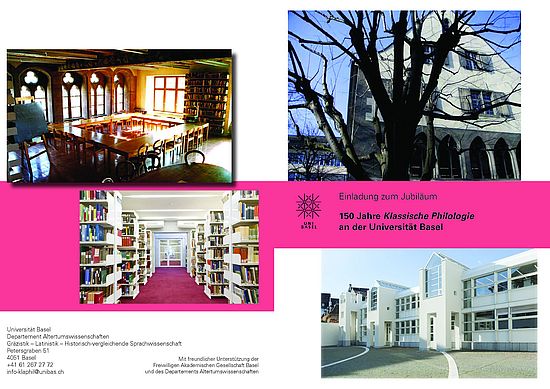
| Greek | Latin | Third Ordinariate | |||
| 1819-1843 | Emanuel Linder | 1820-1875 | Franz Dorotheus Gerlach | ||
| 1836-1861 | Wilhelm Vischer | ||||
| 1861/62: Founding of the seminary | |||||
| 1861/62 | Otto Ribbeck | ||||
| 1862-1869 | Adolf Kiessling | ||||
| 1869-1879 | Friedrich Nietzsche | 1875-1890 | Jacob Achilles Mähly | 1874-1898 | Franz Misteli |
| 1879-1902 | Jacob Wackernagel | 1890-1896 | Ferdinand Dümmler | ||
| 1897-1903 | Erich Bethe | ||||
| 1902-1909 | Ferdinand Sommer | 1903-1906 | Alfred Körte | ||
| 1906-1909 | Hermann Schöne | ||||
| 1909-1914 | Rudolf Duke | 1909-1912 | Friedrich Muenzer | 1911-1925 | Max Niedermann (Idg. Sem.) |
| 1912/13 | Ernst Lommatzsch | ||||
| 1913/14 | Walter F. Otto | ||||
| 1914/15 | Werner Jaeger | 1914-1922 | Johannes Stroux | ||
| 1915-1917 | Jacob Wackernagel | 1915-1936 | Jacob Wackernagel (Idg. Sem.) | ||
| 1917-1952 | Peter Von der Mühll | 1922-1925 | Günther Jachmann | ||
| 1925-1931 | Kurt Latte | 1940-1949 | Albert Debrunner (Idg. Sem.) | ||
| 1952-1976 | Bernhard Wyss | 1932-1970 | Harald Fuchs | 1942-1961 | Karl Meuli |
| 1970-1987 | Josef Delz | 1966-1980 | Felix Heinimann | ||
| 1981-2002 | Joachim Latacz | 1987-1999 | Fritz Graf | ||
| 2000/01 | Jerzy Styka | ||||
| 2002- | Anton Bierl | 2002- | Henriette Harich-Schwarzbauer | ||
- BONER G., Die Universität Basel in den Jahren 1914-39, Basel 1943.
- BONJOUR E., Die Universität Basel von den Anfängen bis zur Gegenwart 1460-1960, Basel 1960.
- BURSIAN C., Geschichte der classischen Philologie in Deutschland, Munich and Leipzig 1883.
- BURCKHARDT-BIEDERMANN Th., Geschichte des Gymnasiums zu Basel, Basel 1889.
- DELZ J., Obituary of Harald Fuchs, Uni Nova 41/1985, 18-19.
- FUCHS H. / WYSS B., Griechische und Lateinische Philologie, in: Lehre und Forschung an der Universität Basel zur Zeit der Feier ihrer 500-jährigen Bestehens, Basel 1960.
- GUTZWILLER H., Friedrich Nietzsches Lehrtätigkeit am Basler Pädagogium 1869-1876, Basler Zeitschrift 50, 1951, 148-224.
- HARTMANN A., Basilea Latina, Basel 1931.
- HEINIMANN F., Nachruf auf Bernhard Wyss, Uni Nova 44/1986, 12-13.
- HIS E., Basler Gelehrte des 19. Jahrhunderts, Basel 1941.
- JANZ C. P., Friedrich Nietzsche in Basel, Basler Stadtbuch 1970, 53-68.
- Id, Friedrich Nietzsche's academic teaching activities in Basel 1869-1879, Nietzsche-Studien vol. 3, 1974, 192-203.
- JUNG F., Karl Meuli. Leben und Werk. Diss. Basel 1976 (= 'Biographical Epilogue' to: K. Meuli, Gesammelte Schriften II, Basel 1975).
- KACHLER K. G., Maskenspiele aus Basler Tradition, Basel 1986.
- KREIS G., Die Universität Basel 1960-1985, Basel 1986.
- MIESCHER E., Die Bernoullianum-Vorträge als Vorläufer der Volkshochschule, Schweiz. Hochschulzeitung 33, 1960, 99-103.
- PAULSEN F., Geschichte des Gelehrten Unterrichts, Berlin/Leipzig (3rd edition) 1921.
- PFEIFFER R., Die Klassische Philologie von Petrarca bis Mommsen, Munich 1982.
- SICHERL M., Johannes Cuno. Ein Wegbereiter des Griechischen in Deutschland, Heidelberg 1978.
- STAEHELIN A., Geschichte der Universität Basel 1632-1818, Basel 1957.
- Id, History of the University of Basel 1818-1835, Basel 1959.
- Id, Professors of the University of Basel from five centuries, Basel 1960.
- STAEHELIN E., Die Universität in Vergangenheit und Gegenwart, Archiv für das schweizerische Unterrichtswesen 45, 1959, 1-19.
- STROUX J., Friedrich Nietzsche in Basel, Jena 1925.
- TEICHMANN A., The University of Basel in the 50 years since its reorganization in 1835, Basel 1885.
- Id., The University in its Development in the Years 1884-1913, Basel 1914.
- THOMMEN R., Geschichte der Universität Basel 1532-1632, Basel 1889.
- Id, The University of Basel in the Years 1884-1913, Basel 1914.
- Id, On the study of the Greek language at the University of Basel, in: Antidoron (Fs. J. Wackernagel), Göttingen 1924, 344-53.
- VISCHER E., Wilhelm Vischer, Basel 1958.
- VISCHER W., Geschichte der Universität Basel von der Gründung 1460 bis zur Reformation 1529, Basel 1860.
- WACKERNAGEL J., Das Studium des klassischen Altertums in der Schweiz (Rektoratsrede), Basel 1891.
- WEHRLI F., Peter Von der Mühll, Gnomon 43, 1971, 427-29.
- WYSS B., Felix Staehelin 1873-1952, Swiss Journal of History 2, 1952, 264-67.
- Id, Wilhelm Vischer-Bilfinger (1808-1874) and the Philological Seminar of the University of Basel, Mus. Helv. 19, 1962, 225-31.
- Id, Karl Meuli. Gedenkworte des Vertreters der Universität, privately printed Basel 1968, 10-14.
- Id, Peter Von der Mühll 1885-1970, Basler Stadtbuch, Basel 1972, 7-17.
- Id, P. Von der Mühll, in: Ausgewählte Kleine Schriften, Basel 1976, VII-XXI.
Ueli Dill and Martin Müller (1987).
Their text has been updated in a few places by the responsible webmasters.
Quick Links

